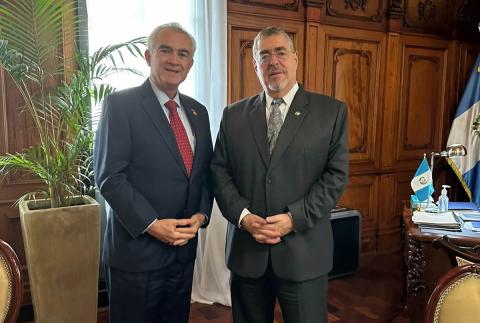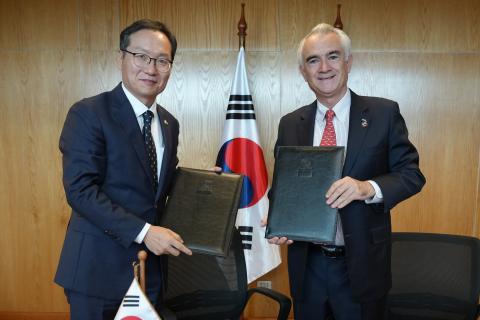Press Release
Access to quality energy services is a vital factor in reducing poverty and improving the environmental conditions for the most socially vulnerable groups, according to Executive Secretary of ECLAC, Antonio Prado, speaking on Thursday 31 October in Montevideo, Uruguay.
The senior United Nations official took part in the launch of the study Energy: a vision of the challenges and opportunities in Latin America and the Caribbean, which was jointly produced (in Spanish) by various regional agencies linked to the energy sector.
The document analyses the current situation and main lessons learned in terms of the region's energy sector. It considers current and previous studies into the energy supply-demand balance, as well as into all social and environmental aspects.
According to the study, the share of renewable energy in the region's energy mix is 25%, which is relatively higher than other world regions (Europe, North America, Asia), mainly due to the significance of hydroelectricity and biofuels in several South American countries.
Despite this, the regional energy mix is dominated by oil and its derivatives (41%) and natural gas (28%).
In the next 20 years, Latin America and the Caribbean will have to meet a demand of about 5.8 million barrels of oil and 700 million cubic metres of natural gas per day.
At the launch ceremony, Antonio Prado stated that natural resources governance plays a central role in the region's development. Governance means the series of national sovereign policies on the ownership and harnessing of natural resources, as well as the distribution of productivity gains resulting from their exploitation.
In his address, the official highlighted two fundamental issues from the document: energy efficiency and the social aspects of energy access.
According to Mr. Prado "We are convinced that climate change is a reality, and one of the ways of helping to reduce its effects is to implement cost-effective energy efficiency policies".
The Deputy Executive Secretary of ECLAC also explained that many of the region's poor and indigenous people lack access to modern sources of energy (electricity, gas, liquid gas and kerosene) and live in "energy poverty".
He cited the example that, in 2011, over 30 million people in the region were without electricity (and 21 million of these people were poor).
The document was produced by the Latin American Integration Association (ALADI), the Regional Association for Oil and Natural Gas Companies in Latin America and the Caribbean (ARPEL), the Economic Commission for Latin America and the Caribbean (ECLAC), the Regional Energy Integration Commission (CIER), the Organization of American States (OAS), the Latin American Energy Organization (OLADE) and the World Energy Council - Latin America (WEC-LAC), and was also sponsored by CAF - Development Bank of Latin America.
Along with the Deputy Executive Secretary of ECLAC, the launch in Montevideo was also attended by ALADI Secretary-General, Carlos Alvarez, Uruguayan Government authorities and representatives of all agencies involved in its production.
Press contact:
ECLAC Public Information and Web Services Section.
ECLAC headquarters: Av. Dag Hammarskjöld 3477, Vitacura, Santiago.
E-mail: prensa@cepal.org, Telephone: (562) 2210 2040.



